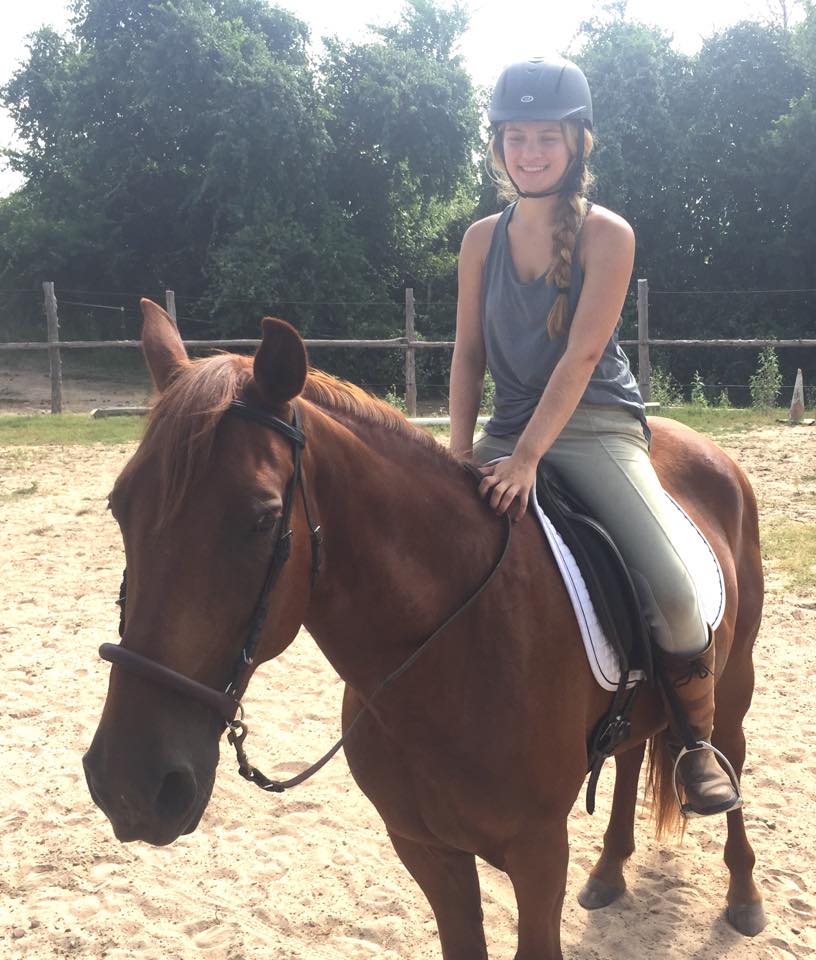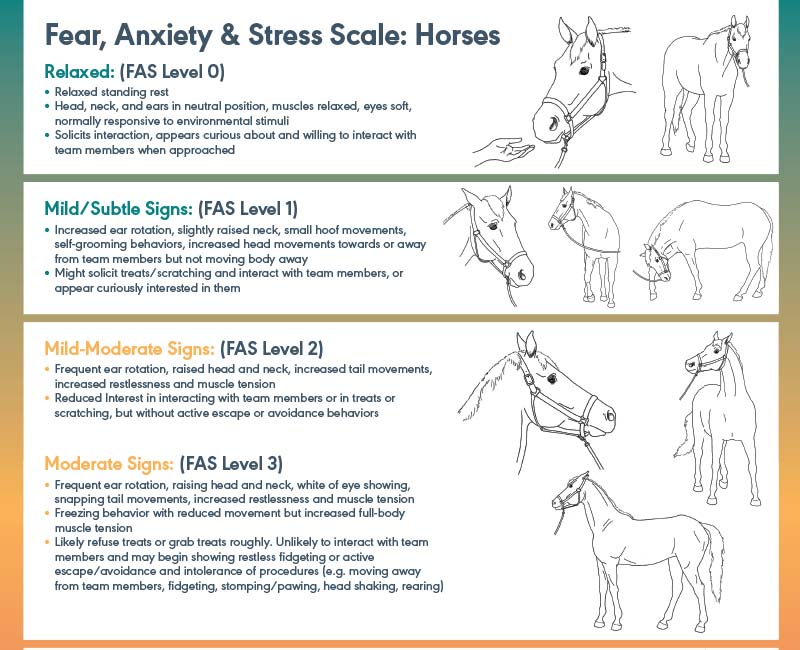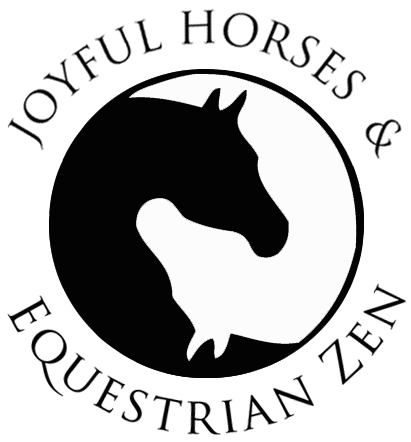
An effective horse trainer will be able to tell people watching them work, exactly what the horse is going to do next. Most people don’t see how these trainers are able to predict these things, so they think the trainer must have a mystical connection, a gift, that others can only watch and appreciate. And for many of these trainers, they have so much experiential learning that they don’t even realize what gives them the ability to predict the horse’s behavior.
That’s where the cheeky scientists come in, asking the age old question, “But how do you know?” And thankfully, some people took the time to list out all the body language a horse uses to indicate that they do not feel good about their current situation. This does not mean that EVERY time a horse does something on this list (called Calming Signals) the horse is unhappy, but if the horse does one of these and is perhaps hesitant to do what you asked, you should probably give that hesitation more weight and recognize that you may be headed for a build up of stress if you continue without helping the horse to feel better about their situation. And always remember, having some control over the environment is a reinforcer. So let our horse signal that they need a mental break, then they won’t have to give you a physical one. 😉
Looking for these small signs that your horse is experiencing discomfort, you of course need to look for context. Chewing doesn’t give you much extra information if your horse just took a bite of food. Licking and chewing when there is no food present, does give an indication that there was something uncomfortable the horse was dealing with. In order to get good at recognizing these signs, you must practice looking for them ALL THE TIME. Again, it doesn’t mean that your horse is miserable all the time, but it’s a language that you need to be proficient in so you can predict what your horse will do next. Then you can be the one showing off your mystical connection to your horse.
You will hear many people talk about an accident or incident that occurred with a horse and they will use the words, “And without warning, the horse….” But how many of these signs were missed?

